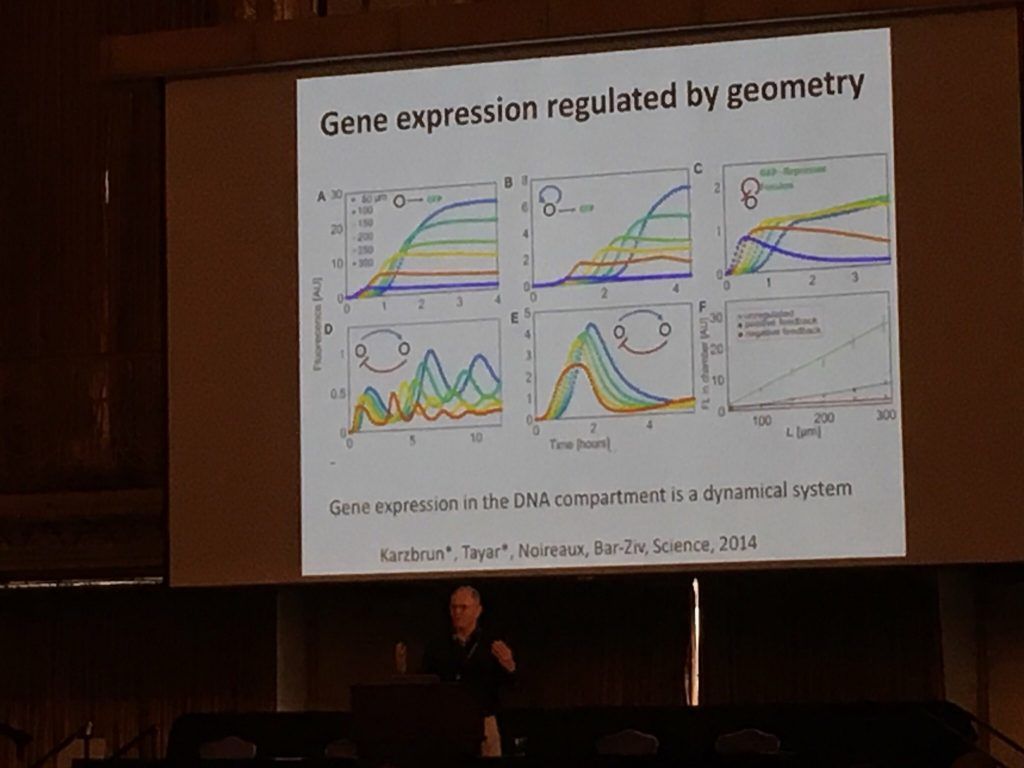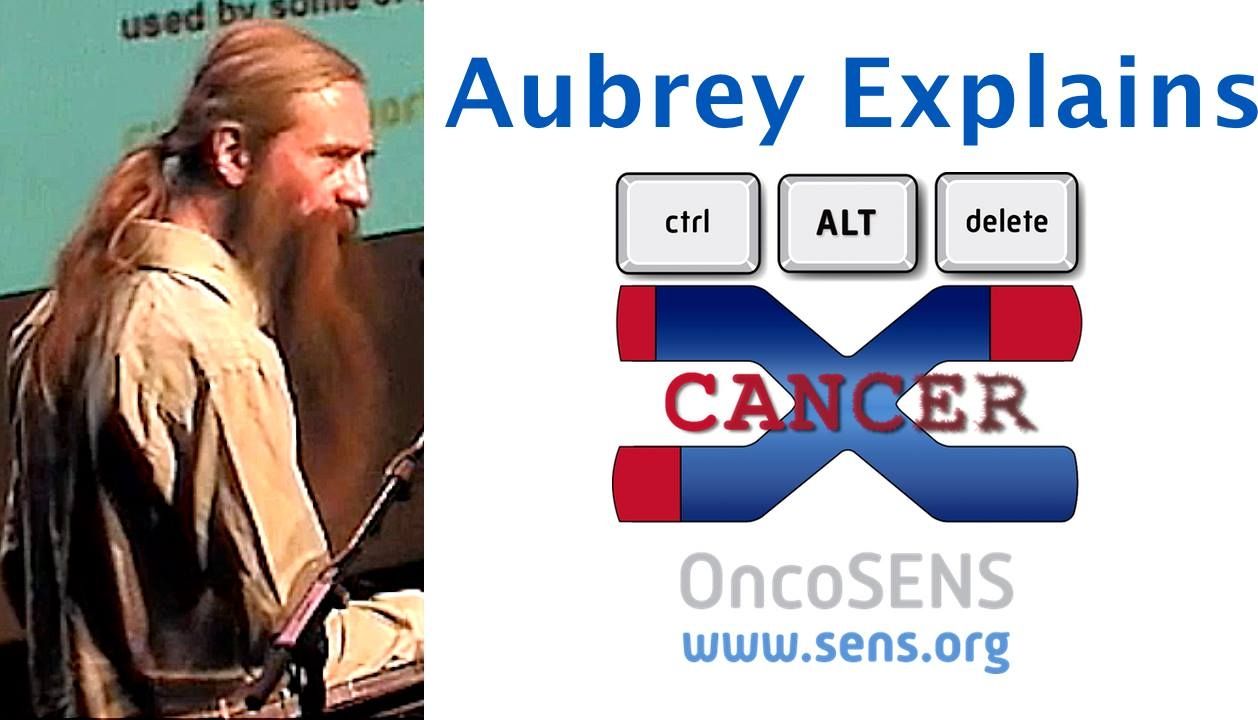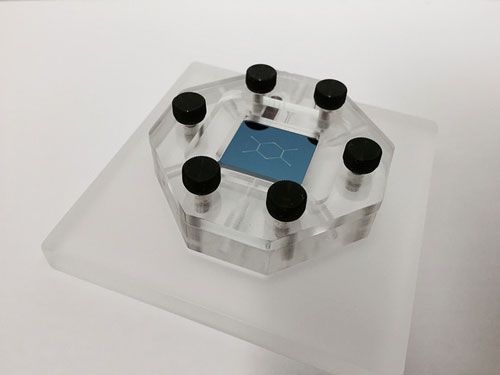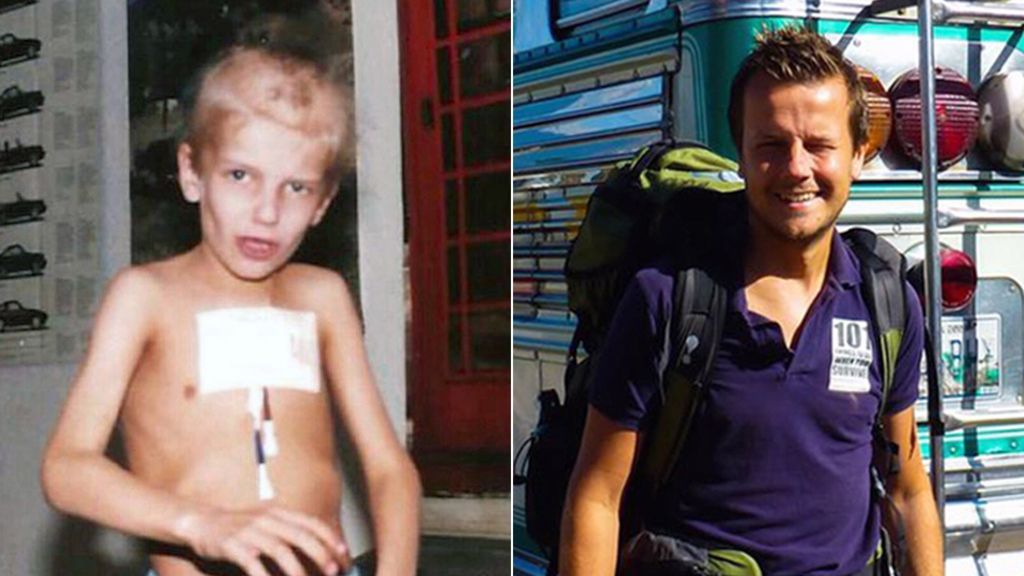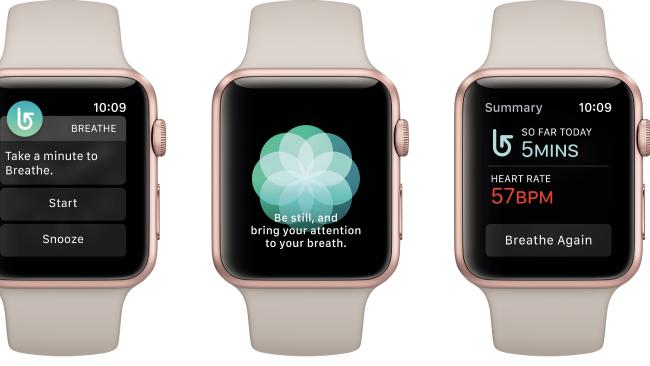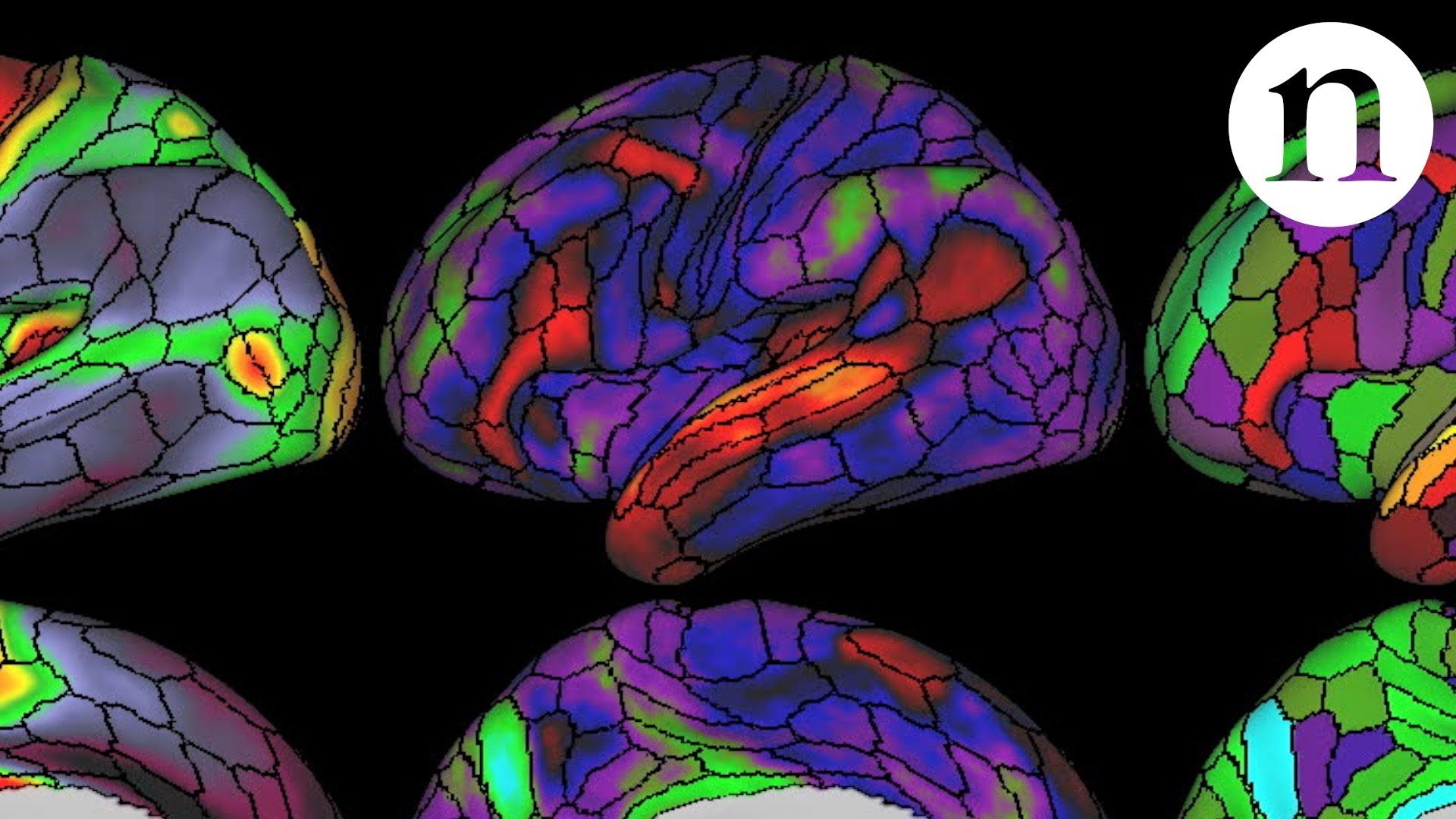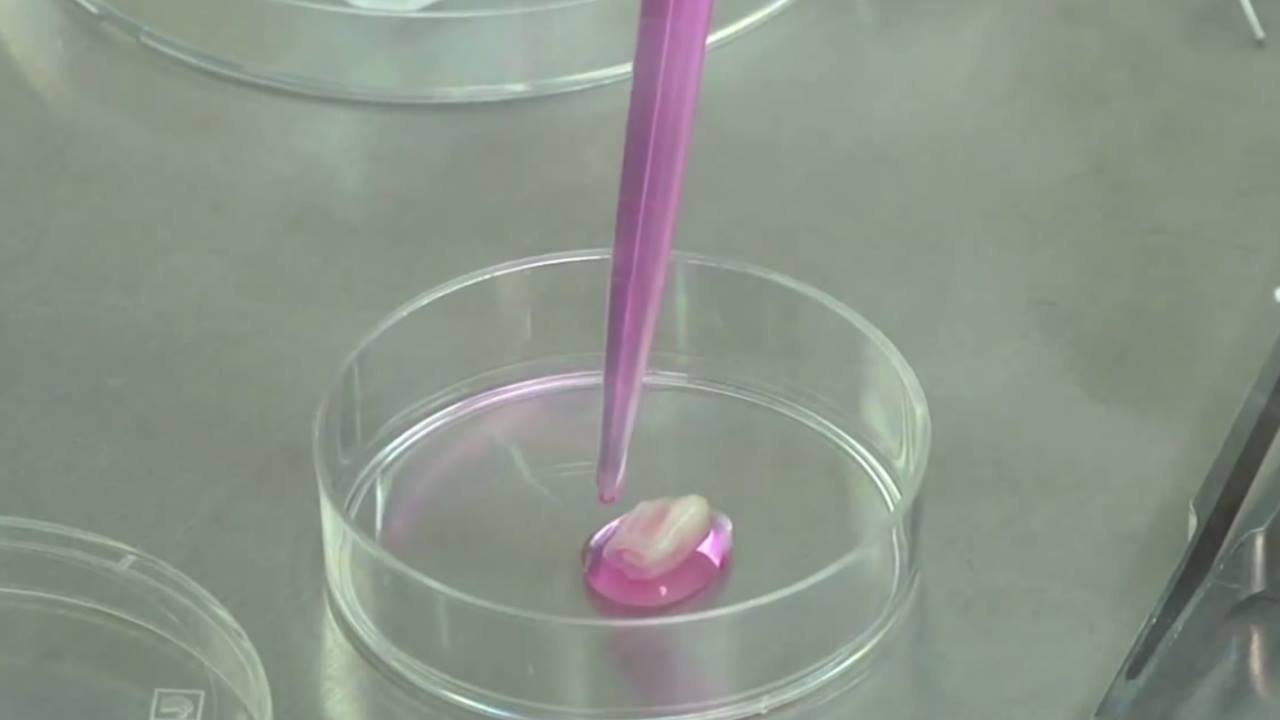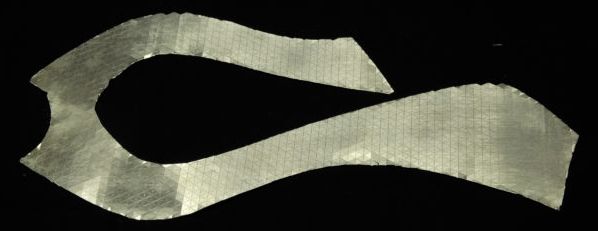
Imagine you wake up one morning burning to make the great physicist Max Planck’s face out of copper. (Just go with it.) Sure, you could sculpt it, but there’s a better way. Cut a flat copper sheet into a half-oval, and take a triangle out of the center of its straight edge. Divide it into smaller triangles, bend the sheet so that the two sides of the big triangle touch—and violà! A sheet of flat copper triangles has morphed to match every nook and cranny of Planck’s face. No sculpting required.
If that sounds like magic … well, that’s understandable, because we left a few steps out. Computer scientist Keenan Crane from Carnegie Mellon University actually did this with real copper, and you can see a computer model of the final product at the top of this article. Making Planck’s face wasn’t the point, of course: When Crane cut the sheet into carefully-designed triangles, he brought it into a class of materials known as auxetics, whose curious and complex properties have excited researchers for decades. Someday, auxetics could improve highway shock absorbers, form more comfortable and versatile shoes, and line veins that thicken when expanding.
At least, that’s what the grant applications say. “People give a lot of lip service to how it’s gonna change the world, in terms of curing cancer,” says Crane. “But at this stage people are still trying to figure out just basic questions.” Auxetics all started with a 1987 Science paper by engineer and professor Roderic Lakes. He reported a new kind of polymer foam that contradicted common sense. It expanded in one direction when stretched in another, and contracted in one direction when squeezed in another.
Read more
